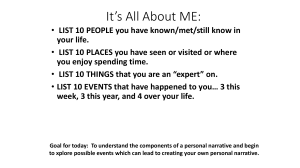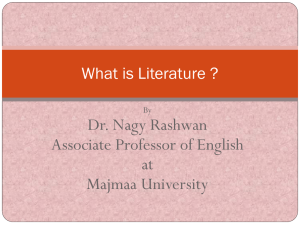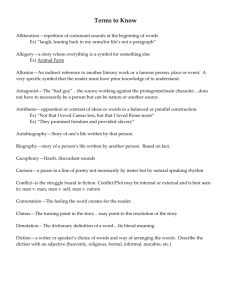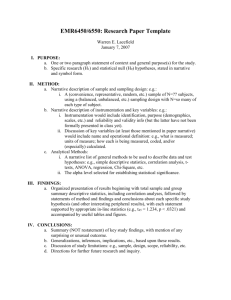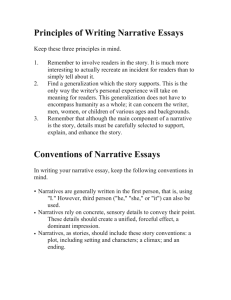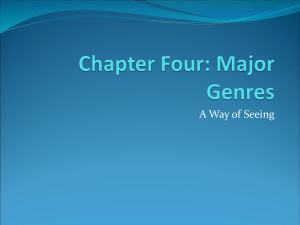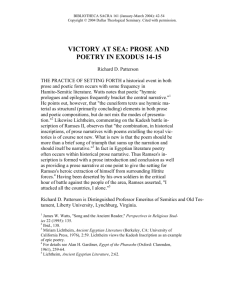WritingArtistStatement.doc
advertisement
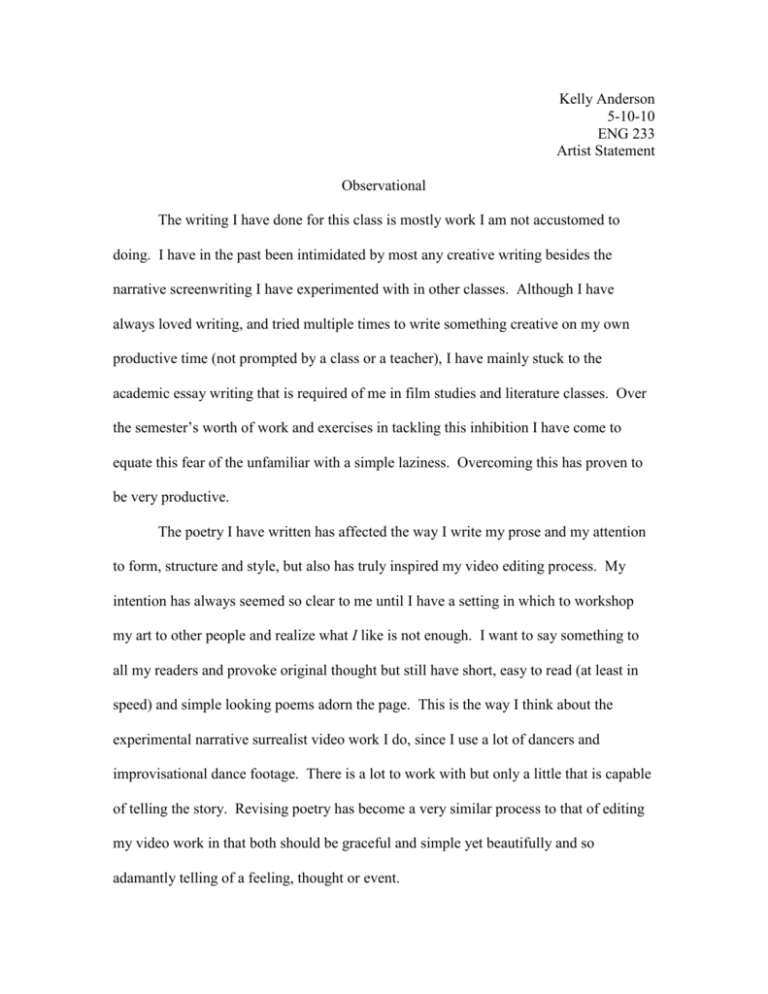
Kelly Anderson 5-10-10 ENG 233 Artist Statement Observational The writing I have done for this class is mostly work I am not accustomed to doing. I have in the past been intimidated by most any creative writing besides the narrative screenwriting I have experimented with in other classes. Although I have always loved writing, and tried multiple times to write something creative on my own productive time (not prompted by a class or a teacher), I have mainly stuck to the academic essay writing that is required of me in film studies and literature classes. Over the semester’s worth of work and exercises in tackling this inhibition I have come to equate this fear of the unfamiliar with a simple laziness. Overcoming this has proven to be very productive. The poetry I have written has affected the way I write my prose and my attention to form, structure and style, but also has truly inspired my video editing process. My intention has always seemed so clear to me until I have a setting in which to workshop my art to other people and realize what I like is not enough. I want to say something to all my readers and provoke original thought but still have short, easy to read (at least in speed) and simple looking poems adorn the page. This is the way I think about the experimental narrative surrealist video work I do, since I use a lot of dancers and improvisational dance footage. There is a lot to work with but only a little that is capable of telling the story. Revising poetry has become a very similar process to that of editing my video work in that both should be graceful and simple yet beautifully and so adamantly telling of a feeling, thought or event. Another obstacle I constantly struggle with in video editing is “cutting my beauties”. This can best be described as distancing myself from my work and only keeping the best, telltale shots that actually accentuate the end result I work towards. This manifests itself as coming to terms with “shorter is better” in most student work. There came a time when, as a student, I realized that the work accomplished in an academic setting is part of a learning process, a sequence of rigorous exercises, so working towards perfecting technique and style comes out of multiple shorter exercises, not long-winded attempts to master the work. Students should not be ready to produce masterpieces, otherwise they should be teaching these classes, not taking them. Like cutting my beauties and letting myself see my work from the audience’s perspective, I have learned to distance myself from my short narrative prose pieces. In this class, a lot of the feedback I received commented on the universality of my work being read amongst more than simply people who are like-minded to my own interests and hobbies. My narrative pieces spend a lot of time exploring what I am familiar with and passionate about, i.e. spend most of my time thinking about: vinyl records, experimental music, coffee and specifically the café I work at, etc. These pieces, in the beginning of class, were terribly abstract since my language was confusing, my sentences too long and my imagery was so specific to what I saw easily in my mind while writing that it had no room to look like something to anyone else. Learning that an audience of cinemagoers is no different than an audience of readers, my narrative pieces have come to a shorter length in order to work towards a happy length in micro-fiction. I intend to explore my passions in a more universally inviting way where those unfamiliar with what I write about can delve into that new world and still feel as amazed by hip-hop, lyric surrealist poetry and the wax of a record as I am everyday. Take into account, though, that I do not believe in spoon-feeding my readers, nor the audiences for my experimental video work. I want there to exist an attention paid to the language and style I write in and have to really absorb the writing in order to be a part of it, like deciphering a David Lynch film. Working towards writing well enough for my work to be engaging and inspiring yet not too complicated and confusing is the challenge. Both my prose pieces and my poems work with surreal imagery through nonconventional language and diction and a lot of attention paid to painting a specific picture to explore, like an elaborate set. I like to use contrasting emotions: from dark, evil smells and sounds to humorous syntax and language to experimentation with genre and even small amounts of not only strange but sometimes disturbing or dirty images. I have begun to explore unconventional syntax and not only in my poetry but in my prose, too. Revising my work with the tool of a clear intention and vision has proven unfruitful so usually in the revision process I like to rework my pieces as I see fit and let them turn into new pieces. Pigeonholing the work into a cliché and predictable narrative end is something that truly frustrates me so hopefully my work expands into something that has the potential to be fresh and different. My originality and willingness to experiment, and definitely the fact that I allow myself to fail time and time again in order to work towards a better end result, definitely will keep the narrative storytelling I do new and constantly reinventing itself. I would consider my body of work in creative writing to be observational narrative or maybe even memoir, which is what my video work ends up being referred to as: observational. I believe in order to be a perceptive creator/artist of any sort this kind of attention has to be paid to the universe of one’s own interior as well as the exterior space that surrounds them. This is the most important aspect of one’s creativity: an awareness of oneself in his own natural environment. I learned that one from Whitman.


